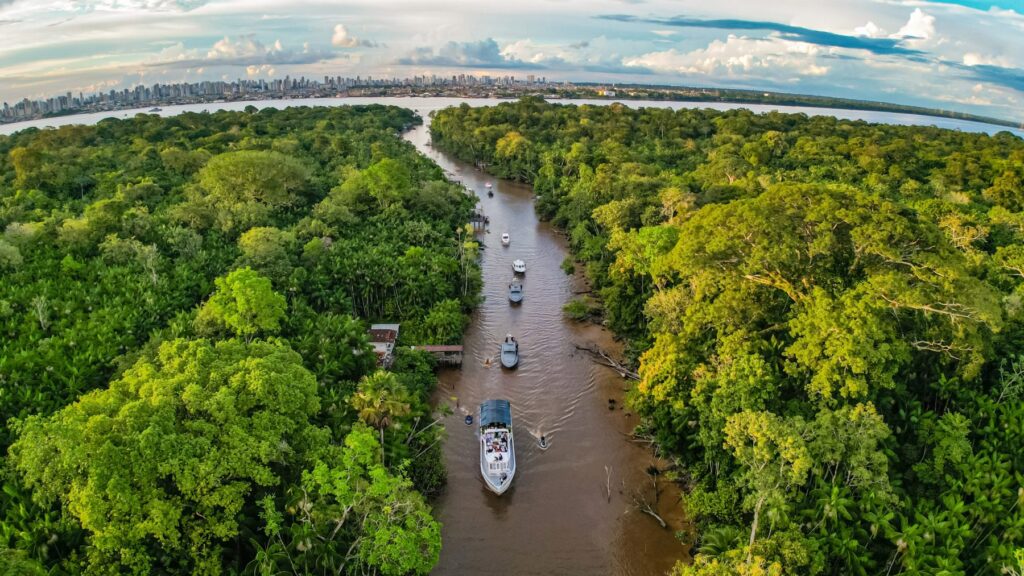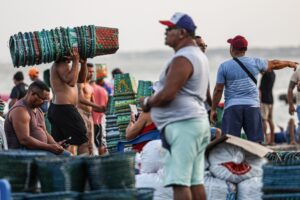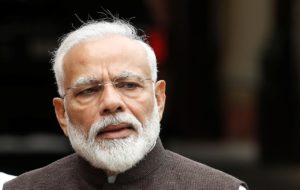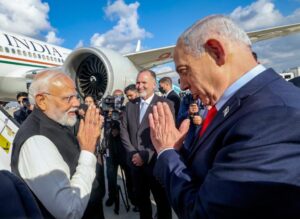Expectations From COP30, The Global Climate Change Summit

A Brazilian presidential committee sails towards Combu Island, in the Amazon city of Belém. International delegations are arriving in the city this month for the COP30 climate negotiations (Image: Ricardo Stuckert / Presidência da República / Agência Brasil)
From 10 November, representatives from more than 100 countries are expected to gather in Belém, Brazil, as the Amazon city hosts the COP30 climate summit. It is a conference that the United Nations has described as a decisive milestone for nations to update their climate action plans, and to advance the implementation of measures against global warming.

As the host country, Brazil intends to make this a summit defined by delivery. “Now is the time to act,” said the conference’s president, André Corrêa do Lago, at a preparatory event in August. “COP30 will be the moment to adjust the instruments and accelerate implementation.”
But expectations for COP30 are as great as the challenges that surround it. The conference coincides with the tenth anniversary of the Paris Agreement, a global milestone in tackling the climate crisis. The landmark treaty drove an expansion of national policies aimed at creating low-carbon economies, but progress towards its goals is still insufficient: in 2024, the average temperature of the planet exceeded for the first time the agreed target of 1.5C above pre-industrial levels, a threshold defined by scientists as the maximum to avoid the worst impacts of increasingly severe climate events.
Earlier this year, experts warned that the planet had reached its first “tipping point”, with coral reefs in more than 80 countries suffering widespread death due to ocean warming. The scientists and conservationists behind the analysis also highlighted the risk of collapse of the Amazon rainforest, a biome essential for the world’s climate balance – and precisely where the COP30 summit will be held.
Paris Agreement put to the test
With the climate crisis worsening, COP30 will test countries’ willingness to keep the Paris Agreement at the heart of global governance. COP28, held in Dubai in 2023, marked the first global stocktake, and the first-ever mention in a COP final text of the transition from fossil fuels. Last year’s COP29 in Azerbaijan, meanwhile, set a new climate finance target. In Belém, the focus will be on reviewing and implementing national emission reduction targets – the nationally determined contributions (NDCs), which are updated every five years.

A synthesis report will bring together proposals to guide climate action until 2030 and assess countries’ compliance under the NDCs. So far, however, around 70 of the more than 190 signatories to the Paris Agreement have updated their targets. Together, the nations that have already submitted plans account for more than a third of global emissions.
“The plans submitted do not put us anywhere near the path needed for a secure future,” said Miriam Garcia, climate policy manager at World Resources Institute Brazil, an organisation dedicated to researching climate solutions.
She pointed out that, according to recent estimates, the world would need to reduce greenhouse gas emissions by about 31 gigatonnes by 2030 to keep global warming within the 1.5C limit. However, even considering the updated NDCs and other commitments already announced, the projected cut is no more than 2 gigatonnes.
The conference will also focus on adaptation to climate extremes, a just energy transition, and the delivery of the Baku-Belém Roadmap, a document that outlines the path to achieving USD 1.3 trillion in annual climate finance by 2035 – a goal agreed at COP29 in Baku, the capital of Azerbaijan.
In parallel with the official negotiations, the Brazilian government is committed to a broad “Action Agenda”, with more than 350 events involving local governments, companies, researchers and representatives of civil society.
But the focus of this agenda has sparked differing opinions, said Karla Maass, advocacy advisor for Climate Action Network Latin America (CAN-LA), a regional division of the global CAN coalition, which brings together more than 1,900 environmental organisations. “Some believe that it is the arena where real politics and real economics take place, but others consider it a smokescreen to divert attention from the official negotiations,” she told Dialogue Earth.
For Maass, formal and parallel negotiation processes “can be complementary, but the Action Agenda cannot steal the show”.
Strengthening multilateralism
In addition to technical impasses, COP30 is taking place in a “very delicate” geopolitical context, according to WRI’s Brazil’s Garcia. She said that the growing lack of trust between countries – already identified by global leaders as one of the main obstacles to climate negotiations – has weakened alliances and reduced the willingness to cooperate. The return to the US presidency of Donald Trump, who has already driven the slashing of the country’s international climate and aid programmes, coupled with the redirection of government resources towards military and security issues, amid wars such as those in Ukraine and Gaza, has exacerbated the global decline in climate financing.
Faced with geopolitical tensions that could divert attention from the debates, COP30 leaders in Brazil, such as the summit’s executive director Ana Toni, have sought to reaffirm their commitment to multilateralism. This is also a view shared by Garcia, who described it as the only possible way to address the climate crisis. “There is no other space where the most vulnerable countries can express their demands,” she added.
After three editions of the summit hosted by countries whose regimes are widely seen as authoritarian, there have been high expectations that COP30 can mark a return to strong civil society participation, as well as the foregrounding of the Global South’s demands and ambitions.
However, this hope has been overshadowed by exorbitant accommodation prices in host city Belém, which have limited the presence of representatives from social movements and poorer countries. Even with increased financial support from the UN, the problem persists: by late October, 49 delegations reportedly still did not know where they would be staying during the conference, while more than 130 had already guaranteed their accommodation.
Given this scenario, the Climate Observatory, one of the Brazilian organisations that has most closely followed UN climate conferences, has warned that this could become the “least inclusive COP in history”.
“Without delegations from developing countries, the legitimacy of decisions will be called into question,” said Stela Herschmann, a climate policy expert at the Climate Observatory.
Even among the delegations that have managed to confirm their attendance, the tendency has been to reduce team sizes – including in the case of the UN and Brazil themselves. This limitation, according to Herschmann, may affect the pace and quality of negotiations.
“Small teams have to split up into different rooms, which overloads the negotiators. As a result, ambitions tend to diminish,” she explained.
US out, China’s ambition in focus
Donald Trump’s return to the White House in January 2025 led to a renewed withdrawal from the Paris Agreement by the United States – the world’s second largest emitter of greenhouse gases. “In addition to the effects on the global emissions reduction target, this exit also has an impact on global climate finance,” said Garcia. She pointed out, however, that the country has never fully met its financial commitments, adding that the country’s state and municipal governments may try to fill the void left by the federal administration.
With the withdrawal, the US NDC submitted in 2024 is now no longer valid. As for the other key players in the climate arena, the European Union has not yet presented its plans, and China has announced targets that have been widely considered to be below expectations.
In a speech at the UN General Assembly in September, Chinese leader Xi Jinping announced that the country intends to reduce its greenhouse gas emissions by between 7% and 10% by 2035, taking as a reference the peak recorded in recent years.
The commitment was seen by experts as vague and insufficient, especially since China accounts for about a third of global emissions. But Beijing has a history of exceeding its cautious targets.
In addition, with the withdrawal from climate leadership of the United States and the European Union, pressure is growing for China to take the lead on the global climate agenda. Despite its modest targets, the country is considered the only one with sufficient political weight and technological capacity to fill this role.
Beijing has often rejected the idea of explicitly positioning itself as a climate leader. According to Niklas Weins, a professor in the department of international studies at Xi’an Jiaotong-Liverpool University, China does not consider it strategic to take on the role of “sole leader” on international issues, including the environment.
“The United States usually occupies this position, and the Chinese understand the weight associated with this image. Therefore, in the environmental area, what the country wants is distributed leadership with strengthened South-South cooperation,” Weins told Dialogue Earth.
Global South in the spotlight
Experts also advocate a more active role for emerging economies in the green transition. According to Garcia, the leadership of middle-income countries such as China, Indonesia, South Africa and Brazil is essential to enable a low-carbon global economy.
“They produce about half of global emissions, a percentage that is only likely to increase. If they fail to reduce these emissions and adapt to imminent climate impacts, the entire green transition will be at risk,” she said.
At the same time, the global climate transition is seen by many to be opening up a rare development opportunity for countries in the Global South, especially in Latin America. “These countries still have a huge opportunity to expand their [energy] markets and give their populations access to energy that already comes from renewable sources,” said Herschmann. “It is an opportunity to take advantage of this moment of transformation to correct structural inequalities and injustices.”
For Corrêa do Lago, Latin America has before it the chance to take on unprecedented leadership in the quest for climate justice. Historically marked by fragmented positions on the climate agenda, the region has been seeking greater coordination in multilateral forums, with the aim of arriving at COP30 with a more unified and influential agenda.
Both Herschmann and Maass commented that strengthening the Global South’s position in the debate will be essential, but insufficient without the engagement of the major powers. “We are seeing a strengthening of the Global South, but leaders such as the United States and the European Union need to remain engaged and set strong goals. After all, they are historically responsible for climate change,” said Herschmann.





